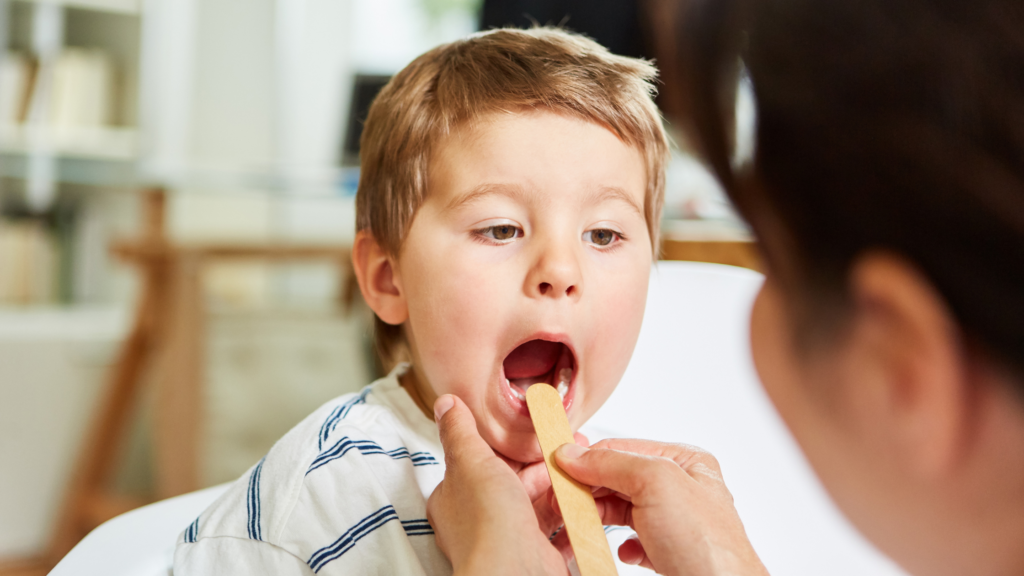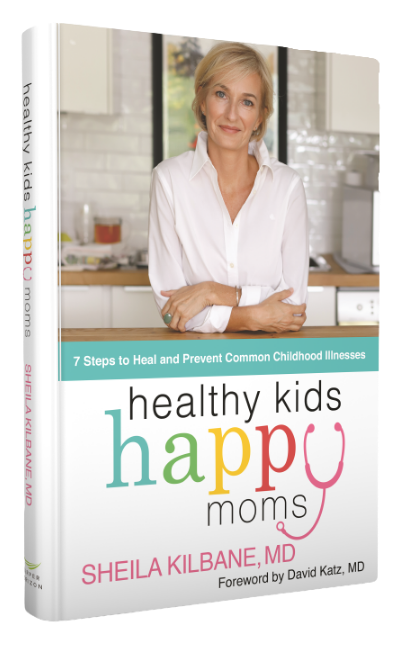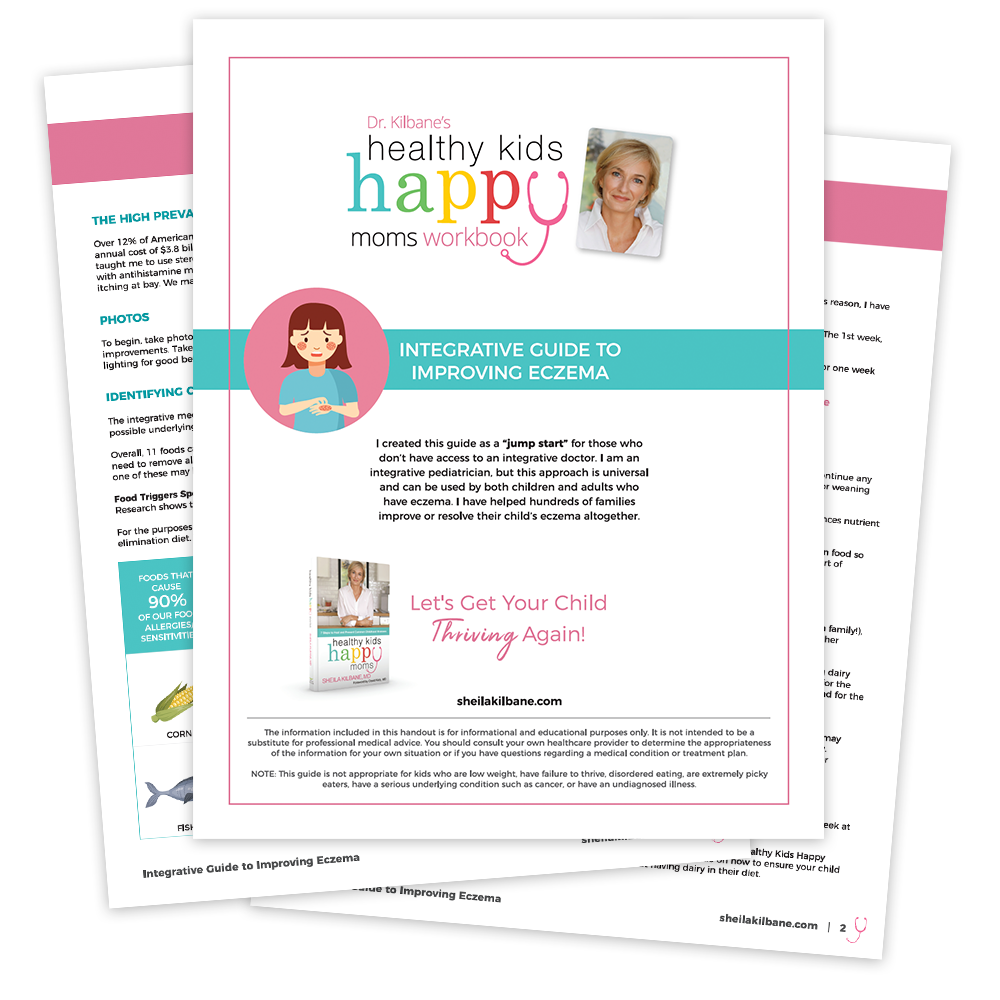Last year I had to take an antibiotic for the first time in about 10 years. Thankfully, I was prepared with my trusty probiotics and didn’t have to worry about antibiotic-associated diarrhea.
There’s no arguing that antibiotics have done more to keep us alive than possibly any other medication, but they also impact the bacteria in the gut (our microbiome).
They kill the bad bacteria in our ears, sinuses, or lungs but they can also harm some of the good, beneficial bacteria in the gut.
For example, did you know that a short, one-week course of Clindamycin can cause gut microbiome changes that persist for up to 2 years?1
That’s right… 2 whole years!
How Probiotics can Help Mitigate Antibiotic-Associated Diarrhea

This image is from page 234 in my book, Healthy Kids, Happy Moms.
Unfortunately, forty percent of children on broad-spectrum antibiotics develop antibiotic-associated diarrhea. The good news, however, is that dating back to the 70s, multiple studies have shown that probiotics decrease antibiotic-associated diarrhea.2
Knowing this research, you better believe I was on a probiotic while I was taking the antibiotic, and continued to take it for several months afterward.
I took our HKHM Biome Protect. It has a blend of seven probiotics to support the gut environment while you or your child take the necessary antibiotic.
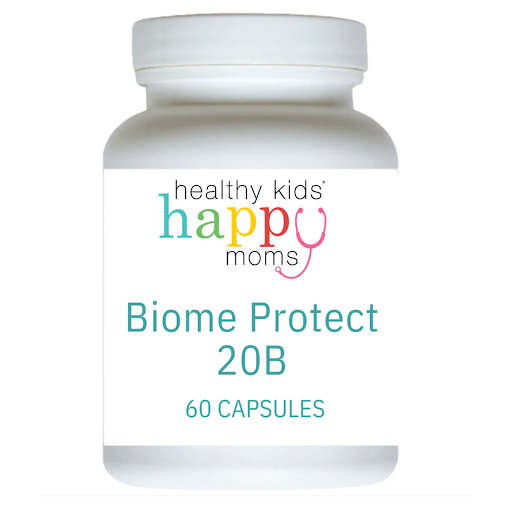
Another great probiotic option when taking an antibiotic (especially for anyone just getting started with supplements), is our HKHM Plantadophilus.
It contains the robust Lactobacillus plantarum that is also in the HKHM Biome Protect. The L. plantarum has significant resistance to antibiotics, which means the antibiotics don’t easily kill this particular species!
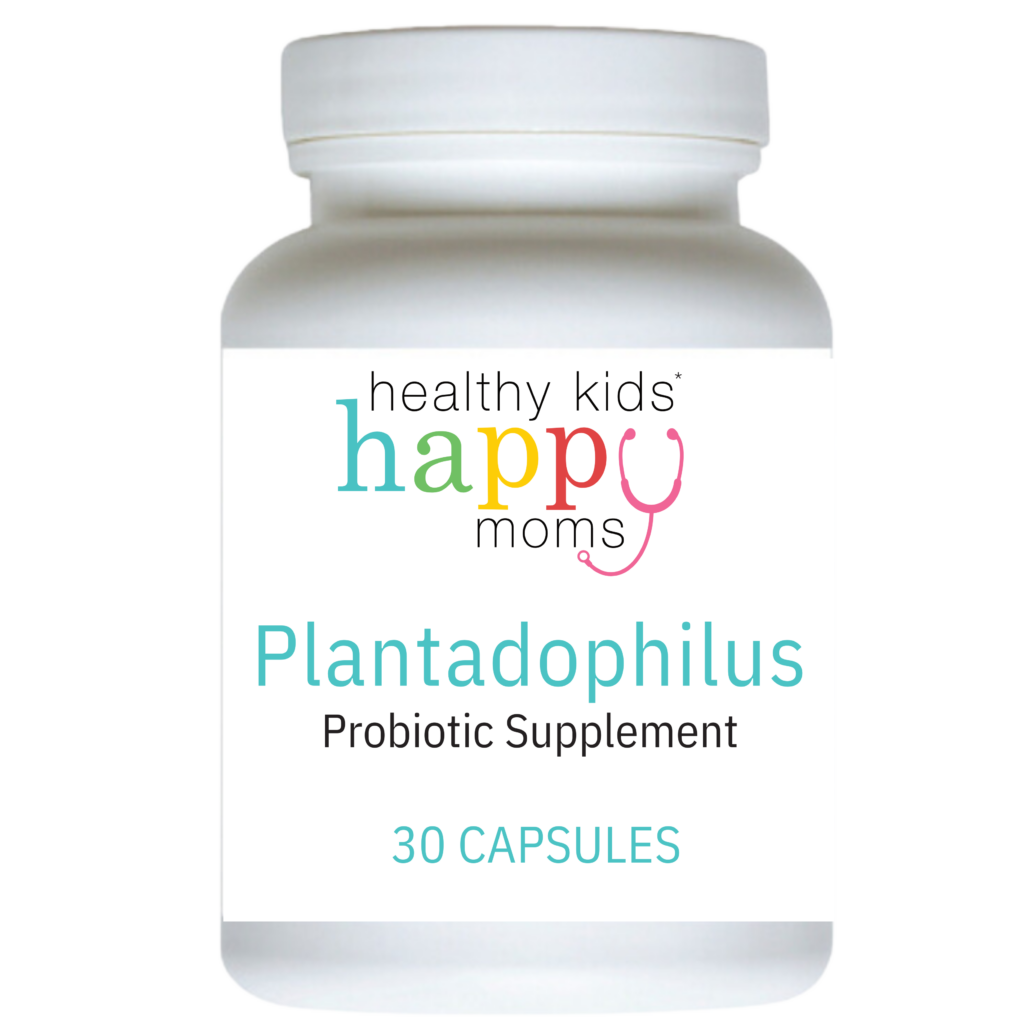
What Are Spore-based Probiotics
When we need an antibiotic, our body is fighting off some type of bacterial infection.
From an integrative perspective, it is important not only to protect the microbiome from the effects of the antibiotic but also to support the system in overcoming the infection.
To do this, I also took our HKHM SporeBiotic IG. This is a spore-based probiotic that also contains immunoglobulin (a protein similar to colostrum that aids the microbiome and the immune cells along the GI tract).
The immunoglobulin works synergistically with the probiotic to facilitate immune resilience (the body’s ability to bounce back after an illness).
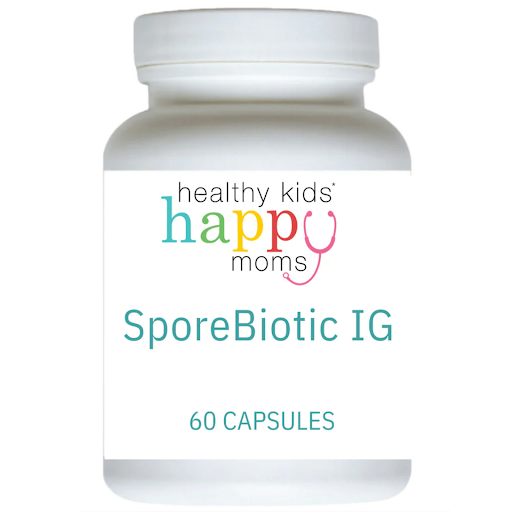
HKHM Biome Protect or the HKHM Plantadophilus, plus HKHM SporeBiotic IG makes a powerhouse combination. I recommend you keep these on hand so you are ready if someone in the household gets sick.
The best part is, HKHM Biome Protect and HKHM SporeBiotic IG do not need to be refridgerated and are wonderful probiotic companions to take with you while travelling!
References:
- Sonja Löfmark, Cecilia Jernberg, Janet K. Jansson, Charlotta Edlund, Clindamycin-induced enrichment and long-term persistence of resistant Bacteroides spp. and resistance genes, Journal of Antimicrobial Chemotherapy, Volume 58, Issue 6, December 2006, Pages 1160–1167, https://doi.org/10.1093/jac/dkl420
- Hayes SR, Vargas AJ. Probiotics for the Prevention of Pediatric Antibiotic-Associated Diarrhea. Explore (NY). 2016 Nov-Dec;12(6):463-466. doi: 10.1016/j.explore.2016.08.015. Epub 2016 Aug 26. PMID: 27688016; PMCID: PMC5140692.

